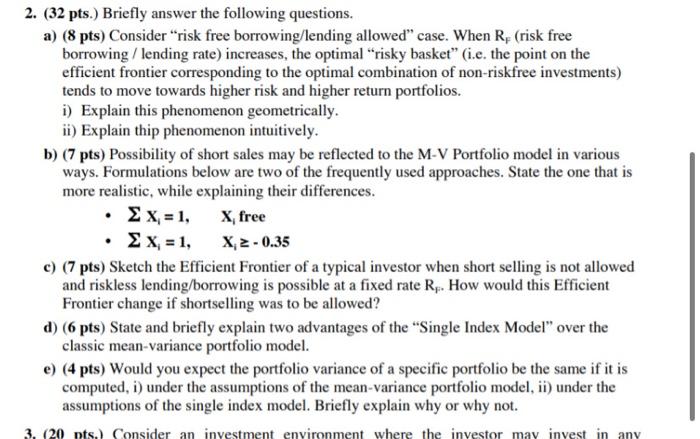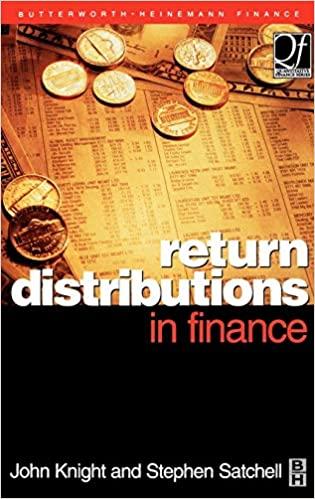Answered step by step
Verified Expert Solution
Question
1 Approved Answer
b 2. (32 pts.) Briefly answer the following questions. a) (8 pts) Consider risk free borrowing/lending allowed case. When RF (risk free borrowing / lending
b 
2. (32 pts.) Briefly answer the following questions. a) (8 pts) Consider "risk free borrowing/lending allowed" case. When RF (risk free borrowing / lending rate) increases, the optimal risky basket" (i.e. the point on the efficient frontier corresponding to the optimal combination of non-riskfree investments) tends to move towards higher risk and higher return portfolios. i) Explain this phenomenon geometrically. ii) Explain thip phenomenon intuitively. b) (7 pts) Possibility of short sales may be reflected to the M-V Portfolio model in various ways. Formulations below are two of the frequently used approaches. State the one that is more realistic, while explaining their differences. = 1, X, free , = 1, X2 -0.35 c) (7 pts) Sketch the Efficient Frontier of a typical investor when short selling is not allowed and riskless lending/borrowing is possible at a fixed rate R. How would this Efficient Frontier change if shortselling was to be allowed? d) (6 pts) State and briefly explain two advantages of the Single Index Model" over the classic mean-variance portfolio model. e) (4 pts) Would you expect the portfolio variance of a specific portfolio be the same if it is computed, i) under the assumptions of the mean-variance portfolio model, ii) under the assumptions of the single index model. Briefly explain why or why not. 3. (20 pts.) Consider an investment environment where the investor may invest in any 
Step by Step Solution
There are 3 Steps involved in it
Step: 1

Get Instant Access to Expert-Tailored Solutions
See step-by-step solutions with expert insights and AI powered tools for academic success
Step: 2

Step: 3

Ace Your Homework with AI
Get the answers you need in no time with our AI-driven, step-by-step assistance
Get Started


